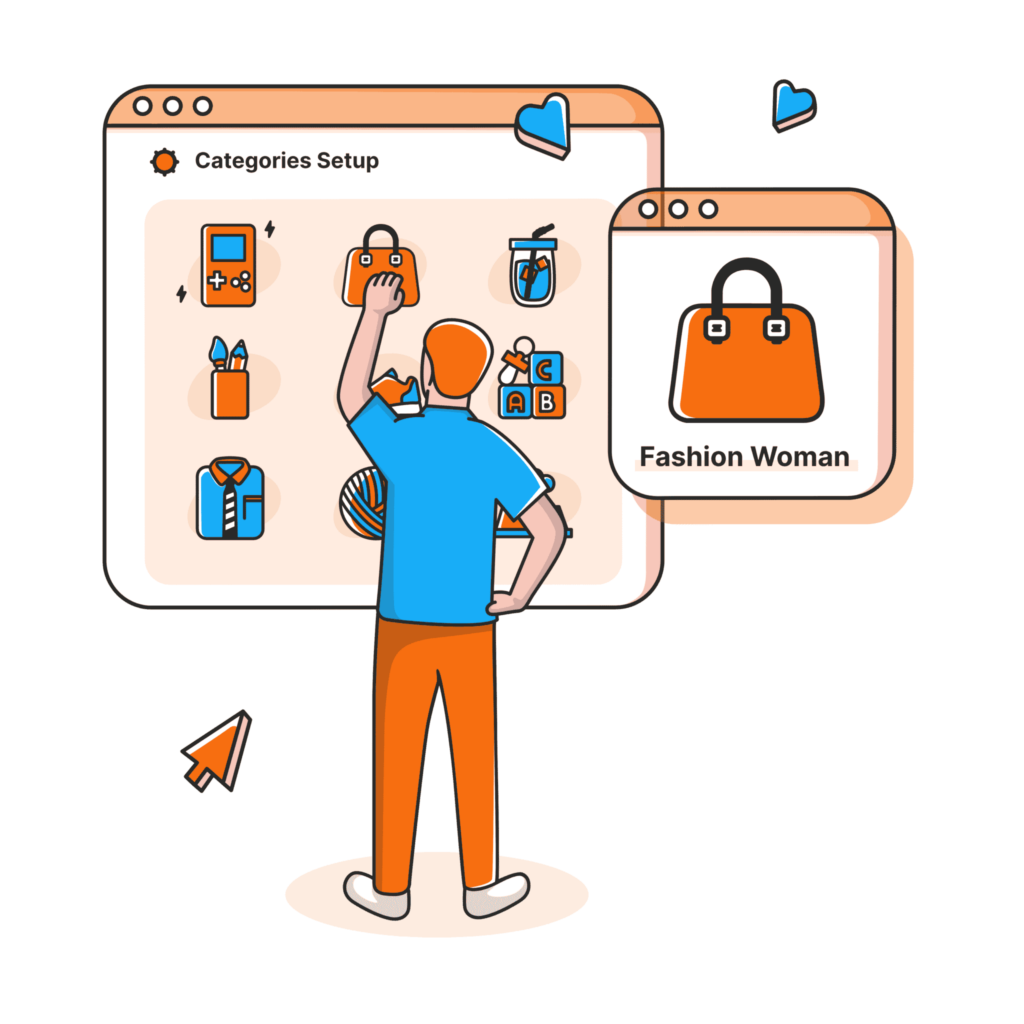If you’re looking for a way to surf the web anonymously or access blocked content in your country, free residential proxies might be the right solution. Residential proxies are IP addresses assigned to real physical locations, like homes and businesses. This means that they are much less likely to be detected and blocked than other types of proxies.
There are many different ways to get a residential proxy. You can buy one, rent one, or even get one for free. This article will show you how to get free residential proxies, but it also explains how it may not be your best choice.
What are proxies?
A proxy server is a computer that acts as an intermediary between a client computer and a server. It allows clients to make indirect network connections to other network services. A proxy server is typically used to filter traffic, reduce bandwidth usage, and improve performance.
What are residential proxies?
Residential proxies are IP addresses that are associated with real physical locations. This means that they are not shared between users and provide a high level of anonymity. residential proxies can bypass geo-restrictions, access blocked websites, and cloak your online activity.
Why residential proxies?
- Improve online privacy by providing a higher level of anonymity than public proxies.
- Bypass geo-restrictions and access blocked content.
- Speed up web browsing by reducing the hops required to reach a destination.
- Ensure that web traffic appears to come from a real IP address rather than a shared or virtual one.
- Provide a higher level of security than public proxies, as they are more difficult to hack or hijack.
Residential proxies use cases.
There are dozens of ways to use residential proxies. You could simply want to access some US Netflix while traveling abroad or setting up multiple Instagram accounts. Residential IPs allow you to make it look like you are accessing the web from a real user device anywhere in the world.

Web scraping
Some reasons to use residential proxies for web scraping are:
- Bypass anti-bot measures that websites may have in place.
- increase web scraping speed by making more simultaneous connections possible.
- Disguise the web scraper’s identity, making it more difficult for website owners to block or take legal action.
- Provide access to geo-blocked content or content that is otherwise difficult to obtain.

Ad verification
There are many reasons to use residential proxies for ad verification. Here are some of the most common ones.
- Ensure that ads are being delivered to the correct audience
- Ensure that ads are being correctly targeted
- To ensure they are being displayed in the correct format
- To ensure that ad blockers are not blocking ads
- Ensure that ads are being properly rotated and served from the correct servers
- And to ensure that the ads are being tracked correctly

SEO monitoring
There are many reasons to use residential proxies for SEO monitoring. Here are some of the most important ones:
- They provide a more accurate representation of the general population.
- They allow you to gather data from a larger number of people.
- They are less likely to be detected and blocked by search engines.
- They can help you gather data from hard-to-reach locations.
- They can help you gather data more quickly and efficiently.

eCommerce
Below are a few reasons to use residential proxies for ecommerce:
- Bypass geographic restrictions: If you are trying to access an ecommerce site that is only available in certain countries, you can use a residential proxy to bypass these restrictions.
- Hide your real IP address: When you use a residential proxy, your real IP address is hidden from the ecommerce site you are trying to access. This helps to protect your identity and your location.
- Speed up your connection: If you are trying to access an ecommerce site from a country with slow internet speeds, using a residential proxy can help to speed up your connection.
- Access more features: Some ecommerce sites offer different features depending on your location. By using a residential proxy, you can access these features regardless of your actual location.
- Improve security: When you use a residential proxy, your connection is encrypted and your data is more secure. This is especially important when you are making financial transactions on an ecommerce site.

Sneaker bots
There are many reasons to use residential proxies for sneaker bots, including:
- Increased success rate: Residential proxies are more likely to be successful when used with sneaker bots as they are less likely to be detected and banned.
- More IPs: Residential proxies provide more IP addresses than most other types of proxy, meaning you can use more sneaker bots at once and increase your chances of success.
- More locations: Residential proxies usually come from a variety of locations around the world, meaning you can target sneaker releases in different regions and increase your chances of success.
- Better speeds: Residential proxies generally have better speeds than other types of proxy, meaning your sneaker bots will run more quickly and smoothly.
- Higher quality: Residential proxies tend to be of a higher quality than other types of proxy, meaning they are less likely to be detected and banned.

Social media
Some social media platforms limit the amount of content that can be consumed by users who are located in certain geographical regions. By using a residential proxy, social media users can view content that may be restricted in their region by changing their location. Additionally, residential proxies can be used to create multiple social media accounts and post content on behalf of multiple users. This is often done by businesses or organizations that manage multiple social media accounts. Additionally, residential proxies can be used to bypass social media platform bans or suspensions.
Paying for free residential proxies.
You know what they say – nothing’s free. And if it is free, you just don’t know how you’re paying for it. For instance, a website like Geonode updates lists of free residential proxies, knowing fully that those IPs won’t work well. And when they don’t, Geonode is right there with open arms and functional residential proxies (the not-free ones).
In that case, the free residential proxies weren’t free—they’re a [mostly] useless add-on of the product they’re trying to sell you. At least that tactic is not malignant.
Other free residential proxies may be a con to steal your IP address, identity, and banking details. Don’t just take our word for it – read all about it.
With that being said – here’s a list of free residential proxies. (If you must).
Free residential proxies list.
| IP address | Port | Country | Latency | Type | Uptime % |
|---|---|---|---|---|---|
| 41.77.7.234 | 3129 | Zimbabwe | 485 ms | HTTP | 100 |
| 46.4.96.137 | 1080 | Germany | 580 ms | SOCKS5 | 80 |
| 190.120.186.19 | 999 | Argentina | 394 ms | HTTP | 100 |
| 45.77.56.114 | 30205 | United Kingdom London | 320 ms | SOCKS4, SOCKS5 | 90 |
| 203.77.231.90 | 1080 | India | 180 ms | HTTP | 69 |
| 51.254.69.243 | 3128 | France | 440 ms | HTTPS | 89 |
| 178.62.193.19 | 1080 | Netherlands Amsterdam | 580 ms | SOCKS5 | 77 |
| 177.72.112.249 | 1080 | Brazil | 455 ms | SOCKS5 | 98 |
| 217.23.6.40 | 1080 | Netherlands | 400 ms | SOCKS5 | 100 |
| 68.183.185.62 | 80 | Singapore | 164 ms | HTTP | 100 |
| 81.171.24.199 | 3128 | Netherlands | 280 ms | HTTPS | 100 |
| 123.182.58.81 | 8089 | China | 284 ms | HTTP | 30 |
| 108.61.175.7 | 31802 | United Kingdom London | 300 ms | SOCKS4, SOCKS5 | 100 |
| 117.62.248.137 | 8118 | China | 248 ms | HTTP | 92 |
| 83.77.118.53 | 17171 | Switzerland Ebikon | 400 ms | HTTPS | 100 |
| 65.21.190.204 | 65005 | Finland | 39 ms | HTTP | 100 |
| 163.172.182.164 | 3128 | France | 300 ms | HTTPS | 100 |
| 218.1.142.117 | 57114 | China | 255 ms | SOCKS4 | 30 |
| 164.68.105.235 | 3128 | United States “Lake Forest” | 320 ms | HTTPS | 100 |
| 170.254.255.246 | 45816 | Brazil | 215 ms | SOCKS4 | 98 |
| 93.171.164.251 | 8080 | Russian Federation Livny | 120 ms | HTTPS | 50 |
| 45.77.161.73 | 10014 | United States | 103 ms | SOCKS4 | 29 |
| 51.68.207.81 | 80 | United Kingdom | 580 ms | HTTPS | 95 |
| 187.155.218.135 | 8081 | Mexico | 122 ms | SOCKS5 | 91 |
| 84.201.254.47 | 3128 | Russian Federation Izhevsk | 240 ms | HTTPS | 56 |
| 200.236.221.242 | 33054 | Brazil | 226 ms | SOCKS4 | 100 |
| 185.118.141.254 | 808 | Turkey | 480 ms | HTTP, HTTPS | 82 |
| 97.74.6.64 | 38467 | United States | 133 ms | SOCKS4 | 100 |
| 217.113.122.142 | 3128 | Russian Federation Tolyatti | 180 ms | HTTPS | 66 |
| 103.95.97.53 | 4153 | Bangladesh | 165 ms | SOCKS4 | 91 |
| 83.77.118.53 | 17171 | Switzerland Ebikon | 400 ms | HTTPS | 100 |
| 202.109.157.67 | 9000 | China | 312 ms | HTTPS | 78 |
Free residential proxies trials.
Next up on the free residential proxy tour is using up the free trials some providers offer. Whether or not it’s ethical to abuse free trials is beyond the scope of the post. However, the consumer and vendor are equally liable.
That’s why IPBurger doesn’t do free trials. There’s too much potential for abuse, and the risk doesn’t outweigh the benefit of squeezing an extra sale or two.
That being said, IPBurger does have a $9 trial that keeps everyone safe while still giving a way to test our proxies before making a more expensive commitment.











